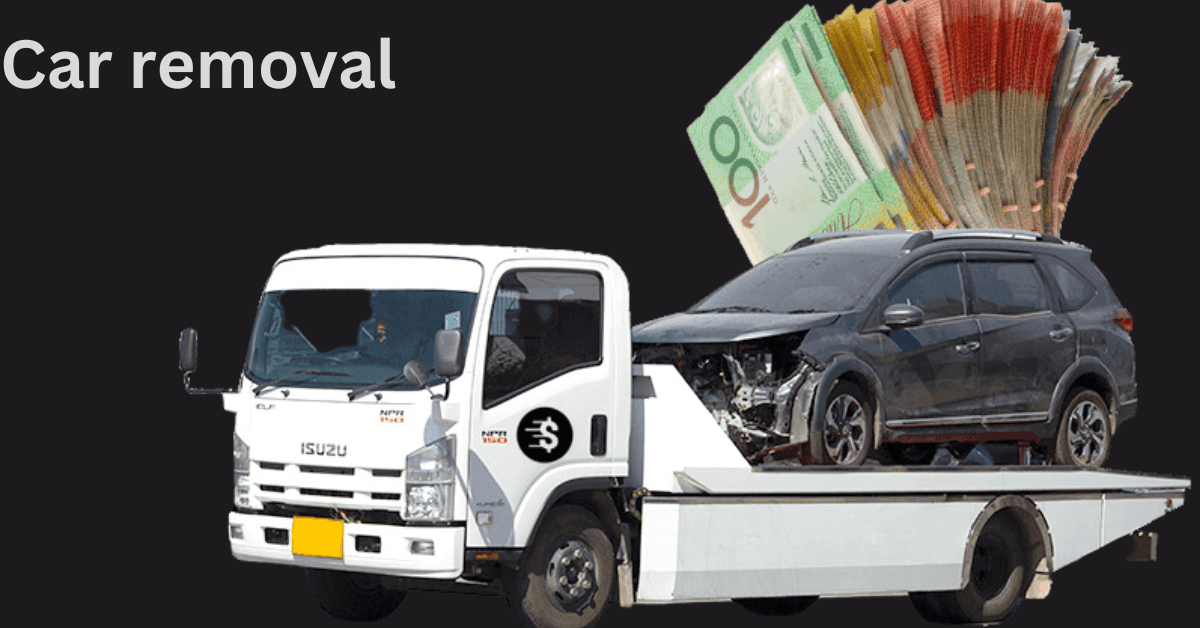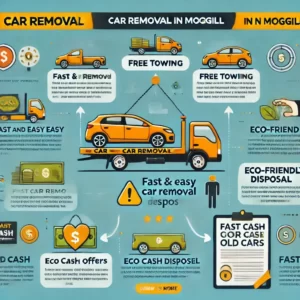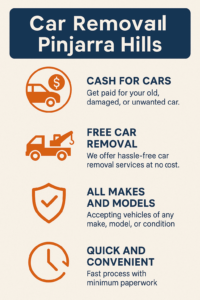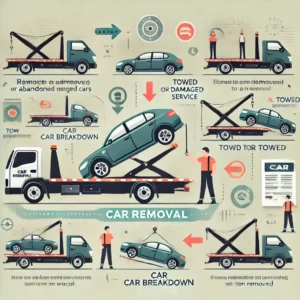Understanding Car Removal:
A Brief Overview
Car removal is an essential service for disposing of unwanted vehicles. The process involves more than towing a car away, whether due to age, damage, or a desire for a newer model. This guide will explore the nuances of removal, ensuring you make informed decisions every step of the way.
The Significance of Proper Car Removal
Removing a car properly is crucial for legal compliance, environmental protection, and personal convenience. It can also offer financial benefits through selling the car or saving on maintenance costs.
Preparing for Car Removal
A. Assessing Your Vehicle
Determining the Condition of Your Car
Assess your vehicle’s condition. Is it operational? Are there significant damages? Understanding its state helps decide whether to sell, scrap, or donate.
When to Consider Car Removal
Consider removal if your vehicle is beyond repair, has high maintenance costs, or is no longer driving safely.
B. Legal and Administrative Considerations
Necessary Documentation for Car Removal
Ensure you have the title, registration, and any required transfer papers. This documentation is vital for legal transfer or scrapping.
Understanding Local Laws and Regulations
Local laws may dictate how and where to dispose of vehicles. Familiarize yourself with these to avoid legal complications.
C. Choosing the Right Service
Types of Car Removal Services
Options include junkyards, scrap services, and charities. Each has its procedures and benefits.
How to Choose a Reliable Car Removal Company
Research companies for reliability, compliance, and customer reviews. Ensure they are licensed and offer fair pricing.
The Car Removal Process
A. The Pickup
Scheduling and Preparing for Pickup
Contact the service to arrange a pickup. Prepare your car by removing personal items and ensuring easy access.
What to Expect on the Day of Removal
The service will inspect the vehicle, handle paperwork, and tow the car. Ensure all agreements are in writing.
b. Transportation and Handling
How Cars Are Transported Safely
Professional removal services use specialized equipment to transport vehicles without causing further damage or environmental harm.
Environmental Considerations in Car Handling
Responsible companies follow environmental guidelines, ensuring fluids and hazardous materials are correctly disposed of.
C. Payment and Charges
Understanding the Pricing Model
Prices depend on the car’s condition, make, model, and the service chosen. Some services may offer a flat fee, while others base it on the vehicle’s salvage value.
Negotiating the Best Deal for Your Car
Don’t hesitate to negotiate. Be informed about your car’s value and compare offers from different services.
Post-Removal Considerations
A. Recycling and Disposal
How Cars are Recycled
Most parts of a car, from the metal body to the battery, can be recycled. This process minimizes waste and can be a source of reclaimed materials.
The Role of Car Removal in Environmental Sustainability
Proper car disposal ensures harmful substances are managed, and valuable materials are reclaimed, contributing to environmental sustainability.
B. Possible Aftermath
Potential Legal Issues After Car Removal
Ensure all paperwork is completed to avoid future legal car ownership or disposal issues.
Handling Post-Removal Paperwork
Keep copies of all documents, including transfers of ownership and service receipts, for your records.
Special Cases and Exceptions
A. Antique and Collector Cars
Special Considerations for Vintage Vehicles
Vintage cars may have a higher value and specific markets for sale or restoration.
Navigating the Market for Rare Car Removal
Consult with specialists in antique vehicles to understand your car’s value and potential buyers.
B. Non-Operational Vehicles
Handling Broken or Non-Moving Cars
Even non-operational cars have value, either in parts or as scrap metal.
Special Services for Non-operational Vehicles
Some services specialize in non-operational vehicles, offering removal and potentially higher compensation.
Conclusion
Summarizing Key Points
Car removal is a multifaceted process requiring careful legal, financial, and environmental consideration.
Reflecting on the Importance of Responsible Car Removal
Proper disposal of vehicles is essential for environmental sustainability and personal peace of mind.
FAQs
Depending on its condition, it may be scrapped, recycled, or sold for parts.
This varies by location and service, but proof of ownership is generally required.
Responsible services ensure environmentally friendly disposal, but practices vary.







